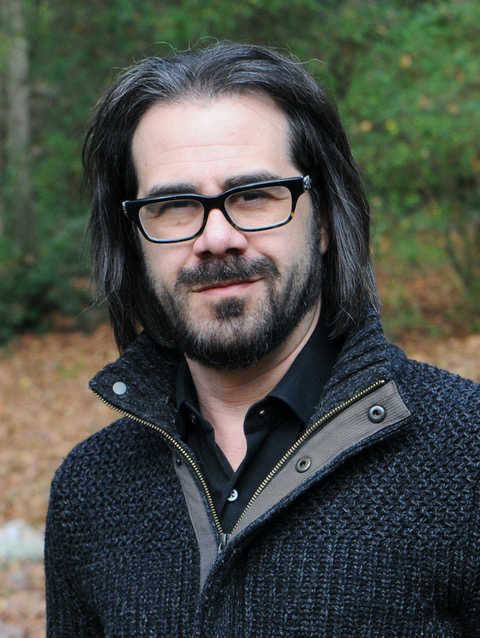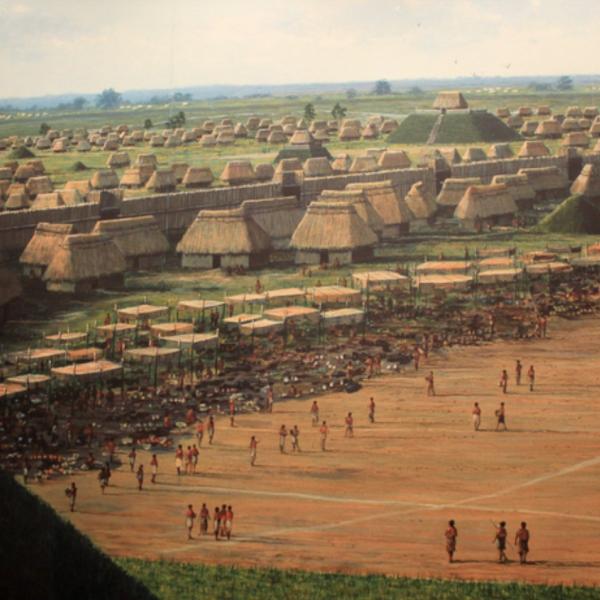
This fall, Ian Bogost, noted media studies scholar and video game designer, will be joining Washington University as director and professor of the Film and Media Studies program in Arts & Sciences with a joint appointment in the McKelvey School of Engineering. He will also hold an affiliation with the Humanities Digital Workshop.
Bogost is internationally recognized for his writing on video games and media studies. He is the author of 10 books, most recently Play Anything: The Pleasure of Limits, the Uses of Boredom, and the Secret of Games, and is a contributing writer at The Atlantic. His research approaches media studies from the perspective of both a critic and a practitioner. While in graduate school, Bogost also worked for tech companies in the digital media space. After completing his doctorate in comparative literature at UCLA in 2004, he joined the faculty at Georgia Tech, where he held appointments in media studies, interactive computing, business, and architecture.
Since 2003, Bogost has been the chief designer at Persuasive Games, an independent video game developer. He created Cow Clicker, which he describes as a Facebook game about Facebook games, and A Slow Year, an award-winning collection of video game poems. Bogost is also an influential thinker in the field of object-oriented ontology, sometimes called “thing theory.” His book Alien Phenomenology outlined a new theory of how objects interact with one another. Bogost co-edits two important book series about these subjects, Platform Studies (MIT) and Object Lessons (Bloomsbury).
“It’s uncool to gush, but this is a thrilling appointment,” said Joe Loewenstein, professor of English and director of the Humanities Digital Workshop and the Interdisciplinary Project in the Humanities. “Bogost is a moralist of design, intellectually restless, and wonderfully impatient. He doesn’t just describe and criticize computer games, he loves them and makes them, and makes them do what we would have wanted them to do if our goal was to uncover the very virtue of leisure.”
Bogost’s appointment is part of large-scale hiring effort in Arts & Sciences aimed at increasing the school’s strengths in data analytics and digital technologies. As part of the Digital Transformation Initiative, Feng Sheng Hu, dean of the faculty of Arts & Sciences, approved 14 new faculty searches earlier this year to increase interdisciplinary teaching and research in these areas.
“Ian Bogost’s research is emblematic of the types of inquiry we seek to support in Arts & Sciences. By bridging creative work and computational inquiry, he produces unexpected and exciting connections,” said Dean Hu. “We are very excited to see what he brings to the university and the St. Louis community.”
Bogost has spent much of his career as the humanist in a series of very technical spaces. Coming to WashU, he will bring that technical humanist experience to Arts & Sciences.
“I’ve worked in the technology and media industries, and I come to WashU from a major technical institute,” said Bogost. “But I was trained as a literary comparatist — the humanities form a cornerstone of both my scholarship and my identity. WashU is home to world-class talent in the humanities. I’m thrilled to be coming home to those disciplines again, but also to have a new opportunity to apply my experience in computing, design, and media to inspire transformative change.”
Bogost will boost the university's growing expertise in video games and new media.
“Ian Bogost pioneered scholarly approaches to video games and computer culture,” said Gaylyn Studlar, the David May Distinguished Professor in the Humanities and director of Film and Media Studies. “The subsequent range of his scholarship and teaching on media technology suggests he will bring fresh perspectives and interdisciplinary insights to Arts & Sciences. We are very excited that he is joining the program in Film and Media Studies in a role that promises to significantly expand our academic profile in contemporary media forms.”
At Georgia Tech, Bogost spanned the gap between the humanities and computational science. With appointments in both Arts & Sciences and the McKelvey School of Engineering, he will provide an important link between both fields at WashU as well.
“I am so excited that Ian will be joining us and play a bridging role between the humanities and computer science and engineering,” said Aaron Bobick, dean of the McKelvey School of Engineering. “Ian is uniquely positioned to connect those two fields because of his deep expertise in both domains. His work in games, narrative, and media provides insight into the relationship between the inherently human activity of storytelling and expressive technologies.”
“When I was an undergraduate, I felt that I had to choose between the liberal arts and engineering,” Bogost said. “Today’s students know that they can do both — and more besides. WashU students already seek double majors and dual degrees all across the campus. They’re showing us a future of deep and broad interdisciplinarity to which we have to catch up. There are so many opportunities to build new connections across the university, among our current and future alumni, and into the St. Louis community as well.”



